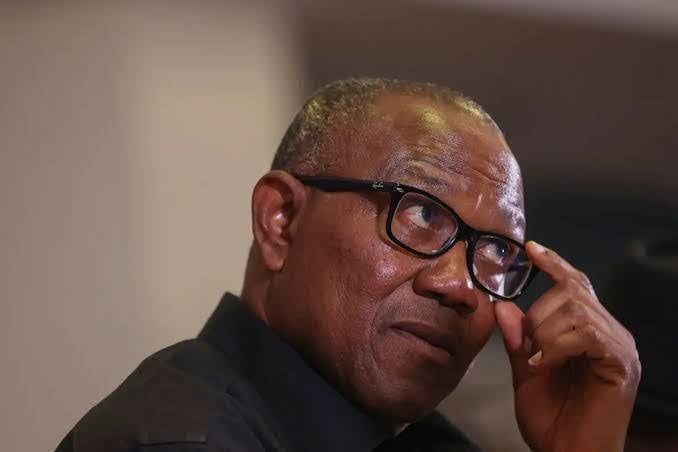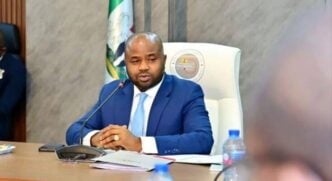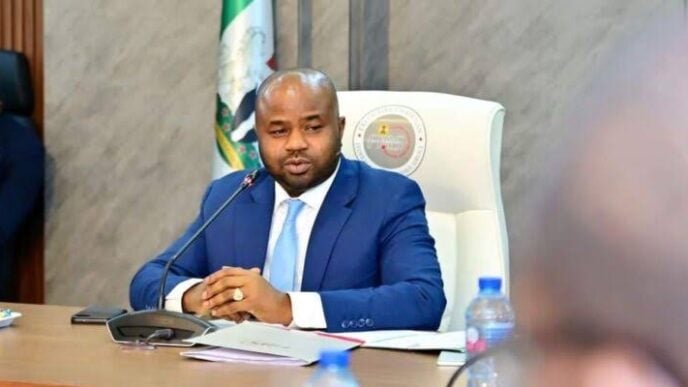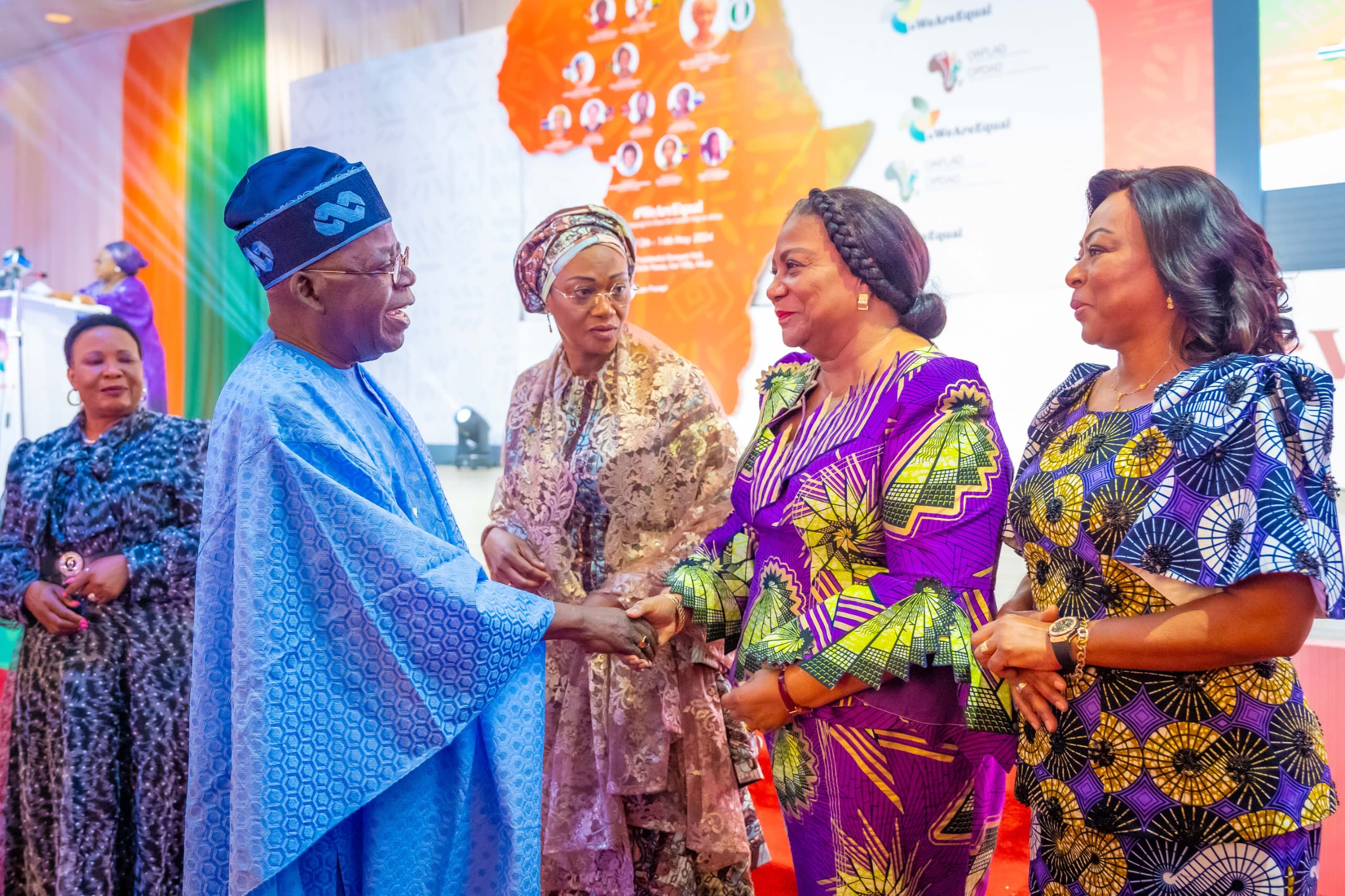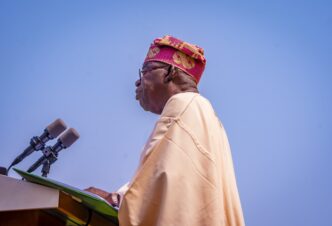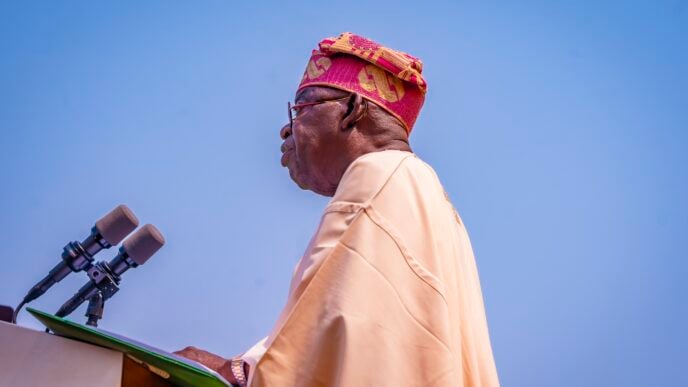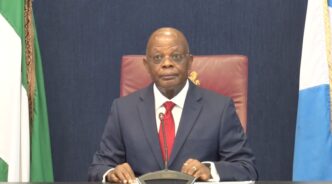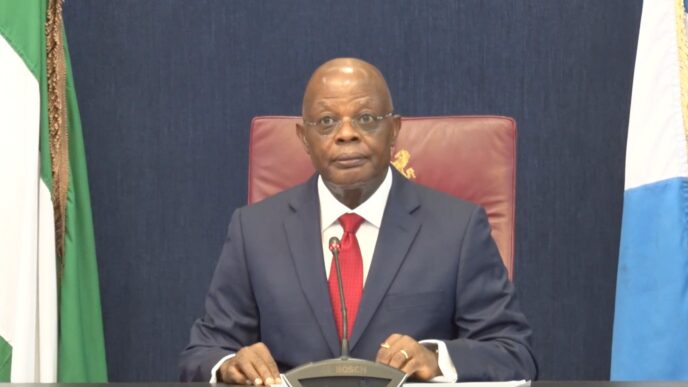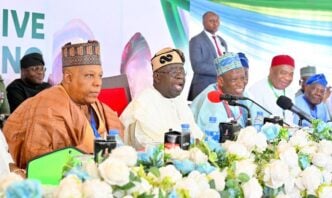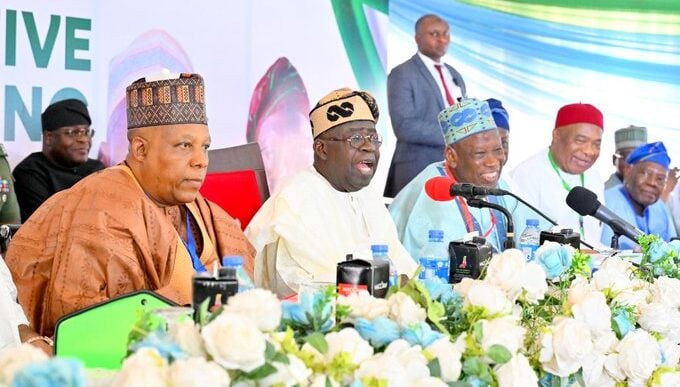Peter Obi
As the 2027 election circle inches, the tempo of political activities are noticeably rising up in the polity with political realignments within and among political parties. There have been defections from notably the opposition People’s Democratic Party (PDP) to the ruling All Progressive Party (APC) leading to permutations that if this trend continues, the PDP may soon go under as most of its leading figures would have deserted the party by the time of 2027 elections.
The opposition political figures presently taking stock of these developments have one major item to consider in their deliberations; who to lead the charge in their desire to stem the tide of disarray in their ranks and face up to the challenge of wresting power from the APC which appears poised to gobble up what it can of the opposition.
In this regard, the opposition is torn between living up to the yearnings of the people of Nigeria to be free from the suffocating choke of the desperate economic conditions and the challenges of assembling a formidable ticket that will galvanize the people for what promises to be a keen political contest against the APC in 2027.
Based on my reading of the political tea leaves, I have narrowed down the choice to a Peter Obi and Nasir El-Rufai presidential ticket for the opposition for the following ten reasons.
1. Burying the ghost of the civil war
Advertisement
The Nigerian civil war which raged between 1967 and 1970 was the most tragic event in Nigeria’s history. Although it has been some 55 years since the end of war, some of the scars of that painful episode still run through the psyche of Nigeria in various ways. The main victims of the war, the Igbos who lost millions of souls have continued to bear the burdens of the war manifesting in a distinct feeling of alienation, marginalization and rejection in many spheres of Nigerian life. Even though the Igbos have persevered through all these and have made significant recoveries individually and collectively since the end of the war, the feelings persist that the Igbos are just being tolerated in the Nigerian scheme of things and that this situation may never be corrected. The structure of the Nigerian political economy is often likened to a three legged stool with the Hausa/ Fulani, Yoruba and Igbos largely making up the stool. But while the two legs (Hausa/Fulani and Yoruba) are firmly attached, the third leg which represents the Igbos is wobbly. And this ungainly leg negatively affects the standing of the stool which in many ways depicts the dysfunctional state of Nigeria today. For Nigeria to take its rightful place in the world there is an overarching need to first of all sort out the existential challenges posed by the Igbo question. In many ways Peter Gregory Obi is the symbol of that Igbo resilience. He has persevered through the crucible of life’s challenges in the personal, corporate and public spheres and has emerged as the most travelled Igbo political personality in terms of public and political mileage. Having earned his spurs in this regard, Peter Obi is the best suited to lead the Igbos into the mainstream of Nigerian political economy. With him leading the opposition as a consensus/coalition presidential candidate the challenge of Igbo reintegration into the Nigerian political and social life will be finally put to rest.
2. Saving Nigerian Democracy
Nobody needs to be told that with current developments in the polity, Nigerian Democracy is now lies in the Intensive Care Unit (ICU) gasping for much needed oxygen. The ruling APC in its bid to railroad the 2027 elections is bent on totally emasculating the opposition. We have seen this in the gradual takeover of the legislative and judicial arms of government. We have also seen the unmistakeable hand of the APC in sponsoring disaffection in the opposition political parties with a view to rendering them weak and unable to mount a reasonable challenge and contest against the APC in the 2027elections. Indeed indications are that the APC will not mind destroying all the opposition parties in order to deny opposition figures the platform to stand for elections. Nigerians are justifiably alarmed at these developments because they portend a dangerous descent into a one-party dictatorship. We have been there before.
Advertisement
From military President Babangida’s political shenanigans to extend his military rule through the banning and unbanning of political parties and political personalities to a convoluted political succession programme to the annulment of the freest and fairest elections. Then General Sani Abacha’s ‘’five leprous fingers’’ political parties and ‘’who the cap fits’’ tenure extension political capers. And then President Olusegun Obasanjo’s third term attempt. All were attempts to deny or truncate the march of democracy which ultimately failed due to the vigilance of the Nigerian people. President Tinubu’s on going efforts to foist a one party dictatorship are in the same frame.
Democracy which we all fought for can only be defended by the vigilant democratic action of the people. The target of President Tinubu’s actions is not just the opposition political figures but the entire Nigerian people. Just as the other previous attempts at truncating the march of democracy ultimately failed, President Tinubu’s efforts will also meet with the strong resistance of the Nigerian people. This is where the pairing of Peter Obi and Nasir El-Rufai both of them seasoned political campaigners will be relevant. Among the opposition political figures the two are by all accounts the most formidable political gladiators with the tenacity and gravitas to robustly lead this imperative national crusade. As the Hausas will say ‘’Karen bana maganin Zomon bana’’ meaning ‘’It takes a modern dog to catch a modern hare’’.
3. Lifting the choke hold of harsh economic policies on Nigerians
Nigerians have been groaning under the harsh economic policies introduced by the Tinubu administration since it came to power. Hyperinflation, unemployment, poor and vulnerable families going hungry as they can barely afford one meal a day, increasing poverty are the signature effects of President Tinubu’s economic policies. Two years on the administration has not been able to meet the targets of what it calls ‘’Economic reforms’’. The price of petroleum products has remained volatile; currency stability has been a mirage; External reserves have been virtually depleted to support the naira at the currency market; unbearably high interest rates that stifles investments; withdrawal and divestment from the Nigerian business climate by long standing companies; unaffordably high power and energy costs which has even compels the presidential residence Aso Villa to withdrawing from the national power grid and installing an alternative solar power source and High tax burden on. Even the International Monetary Fund (IMF) and World Bank who normally support such economic measures in countries, have washed their hands off President Tinubu’s ‘’mongrel’’ economic policies. Both have called for a tweaking of the policies in order to cushion its harsh effects.
Advertisement
But President Tinubu has contemptuously and studiously remained deaf to these calls from Nigerians and foreign economic institutions. What this means is that just as our democracy and politics needs liberation from the suffocating choke hold of the Tinubu administration so does our economic situation. The economic trajectory of the Tinubu administration will neither bring succour nor result in economic transformation of Nigeria. The policies will continue to impoverish Nigerians and degrade the economic status of Nigeria in Africa and the world. Nigerians need a total reset of the economic situation in the country and since President Tinubu has refused all entreaties to do the needful, it behoves on Nigerians to take it upon themselves to democratically remove him and install those who by their antecedents can and will do it. Here again the pair of Peter Obi and Nasir El Rufai as new comers have the capacity to stop Tinubu’s brutal and unpopular economic policies and pragmatically review them to provide the succour that Nigerians need. It will be a strategic choice by Nigerian voters to bring in a new team who will be expected by existential circumstances to do the needful.
4. Need for regional and religious balance.
Nigeria is a complex country made up of different ethnicities. It is also made up of adherents of different religious denominations reflecting the various religious preferences of the people. It is against this background that the extant laws strive to institute the principle of fair representation in appointments to public offices and distribution of projects among other things.
In a deviation from that principle, the present presidential pairing has two adherents of the same religion as president and vice president. This has left adherents of a particular religion feeling marginalized and alienated. This is a serious issue in Nigerian public space and has lingered negatively in the minds of Nigerians. In 2027 Nigerians who feel justifiably aggrieved at this misrepresentation in the presidency have a chance to remedy it if a Peter Obi-Nasir El Rufai pairing comes through. The pairing will not only balance up the North-South divide but also reflect the Islam-Christianity religious make-up of the country.
Advertisement
5. Nigeria needs a new political paradigm devoid of entitlement and exclusion.
Nigeria’s political space is currently structured on the basis of entitlement which emphasises that political office holders hold such offices as compensation.
Advertisement
Invariably holders of such offices do not feel the need to beholden to the voters who voted them in the first places but to the resources they expended in the process of being elected. This makes our politics transactional and not a matter of the democratic will of the people. The negative consequences of this are seen in the increasing instances of retrogression of civil and democratic rights of the people, arbitrary political decisions and wilful desecration of constitutional provisions. If this trend continues we may end up having a democracy by name only where the rights of the powerful individual or groups of individuals replaces those of the people.
Nigeria is at the juncture where uncertainties in many forms rule the land. Our country is at the grip of forces that are bent on choking us off both politically and economically. During the military dictatorships when these negative tendencies were manifesting, we resisted them in the full knowledge that we will prevail over an aberrant form of rule that cannot last no matter its arbitrariness.
But the current situation which is marginally better but more dangerous is being perpetrated by a democratically elected government. Under the guise of democratic rule, undemocratic means are being surreptitiously deployed to achieve outcomes that negate the democracy we all fought for. This is done with a sense of entitlement and expectation that Nigerians will have no choice but to accept it as fait accompli since it is done under a democratic government.
Advertisement
The opposition must not see this development as an occasion to engage in their normal political Gerrymandering. It is a time to be both pragmatic and strategic in meeting these threats to our democratic gains. Threats to our democratic march are as dangerous under the military as in civilian dispensation and must be resisted.
For this the opposition which is circumstantially our vanguard to resist the incipient trending towards not just our hard fought democracy but the nation itself must rise to the occasion. And among the figures in opposition regardless of party affiliation, the preferred pairing by many Nigerians to lead this crusade is none other than Peter Obi and Nasiru El Rufai.
Advertisement
Gadu can be reached via [email protected] or 08035355706 (Texts only)
Views expressed by contributors are strictly personal and not of TheCable.

